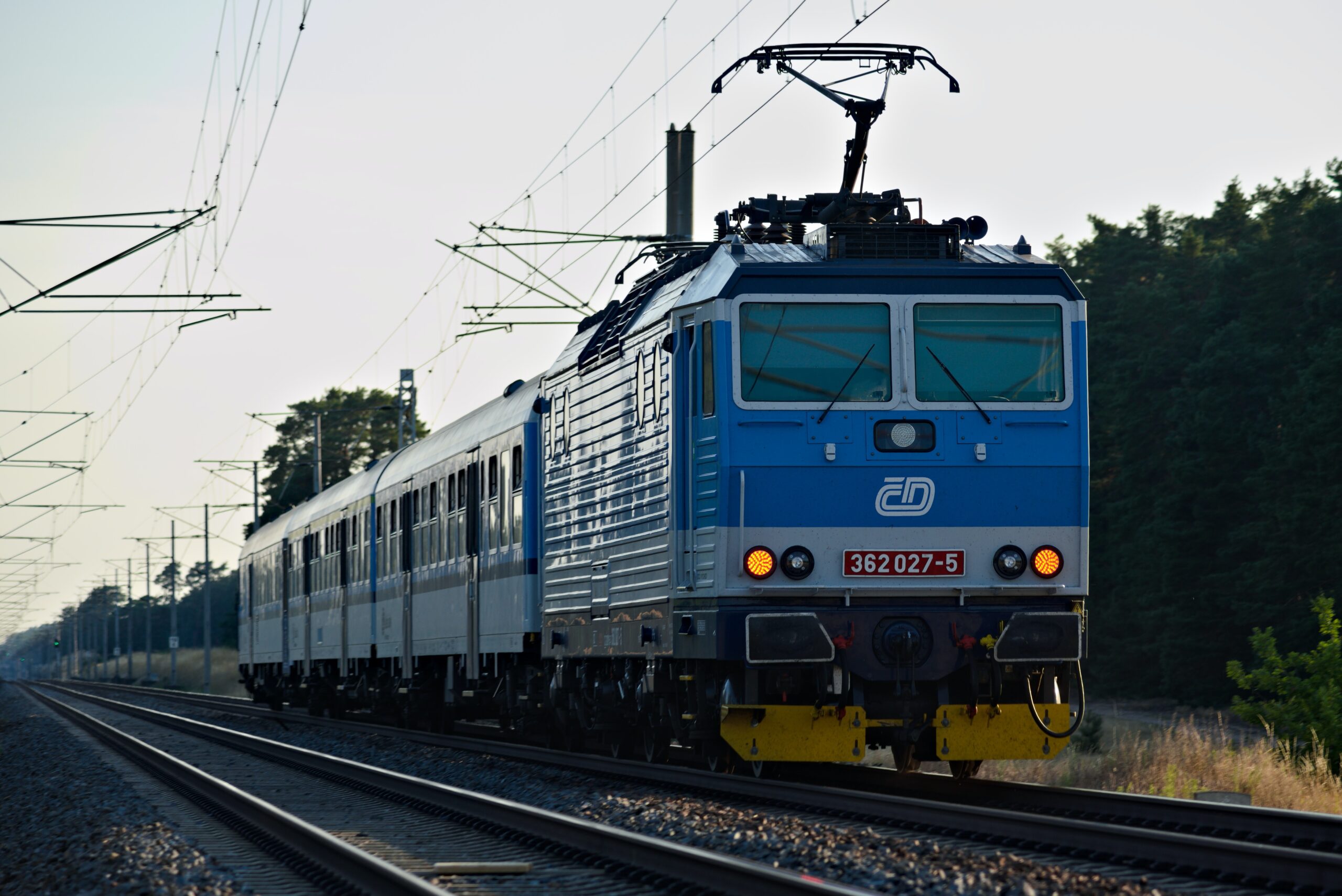With its eye on the eventual reconstruction of Ukraine, Europe is helping academics from the country get their lives back on track.
By Andrew Dunne
Regis Nibaruta remembers the night of 24 February 2022 like no other. After months of speculation about rising tensions with Russia, at 3am his phone rang. It was a fellow electrical engineer also based at the Dnipro National University of Railway Transport in Ukraine and part of the same EU training programme.
‘Have you seen the news?’ the colleague asked. ‘We’re under attack.’
Rush to safety
Before long, with the industrial city of Dnipro a target of heavy Russian bombardment, reality dawned.
‘We were terrified,’ Nibaruta said. ‘I didn’t know what to do or where to go, but I knew I had to get away.’
The war started on a Thursday. By Saturday, with just his passport and laptop as luggage, he was at the Dnipro railway station along with thousands of others hoping to board a train to reach the border.
Roll forward 12 months and 35-year-old Nibaruta, originally from Burundi, is safe, settled and reunited with European colleagues at the University of Twente in the Netherlands that helped to orchestrate his escape. There he’s conducting research that could improve future net-zero transport systems and one day be instrumental in rebuilding Ukraine’s own infrastructure too.
The EU-funded project that he is a part of is called the European Training network in collaboration with Ukraine for electrical Transport, or ETUT. The initiative brings together three universities: Twente, Dnipro and Nottingham in the UK.
Led by Professors Frank Leferink and Gert Rietveld, both electrical-engineering specialists, it aims to harness expertise in power electronics and electromagnetic compatibility.
‘The main engineering challenge in the development of a more sustainable, greener electrical transport system lies in the development of compact, highly-efficient and safe electrical power systems that deliver the necessary energy to charge electric vehicles or supply trains,’ said Rietveld.
Through ETUT, which is funded by the Marie Skłodowska-Curie Actions (MSCA) programme, the team is developing new ways to meet these power demands.
Two-way flows
One is through the development of electronics that allow energy to flow in both directions, a feature that could become a key component in electric trains.
When a train brakes, it creates heat and ordinarily this energy is lost. With this new ‘‘bi-directional’’ approach, braking energy can be recovered and fed back into the power grid, increasing capacity. Some of the first bi-directional railway supply systems are currently being installed and tested in Europe.
In other ways too ETUT is enabling new collaborations.
Nibaruta shares an office with 31-year-old Ivan Struzho, who is originally from the Ukrainian city of Mariupol now occupied by Russia but who was already in the Netherlands when the war broke out.
Whereas Nibaruta’s research focuses on improving battery technologies, Struzho’s looks at electromagnetic interference. Together, the two are exploring how to help reduce the electrical ‘‘disturbances’’ that can be caused by power systems and lead to equipment failure or accidents.
The project’s main goal, however, is to train and inspire the next generation of electronic engineers to develop the transport technologies needed for a zero-carbon world. Even though some of the team including Nibaruta have left Ukraine, the Dnipro National University of Railway Transport is still an active partner in ETUT.
Professor Vladimir Havryliuk, head of department at the university, supervises the project’s work remotely. For him, ETUT has provided a lifeline during these past 12 months in enabling research to continue.
‘The project allows me to maintain my activity in the field and has been a powerful motivational incentive for all university staff and students as it opens up new horizons in study and further work,’ he said.
Awards and returns
Another major initiative improving links between the Ukrainian and EU research communities is the MSCA4Ukraine project to help displaced researchers from Ukraine.
On the eve of the one-year anniversary of Russia’s invasion, the European Commission announced that MSCA4Ukraine – with a budget of €25 million – would help more than 120 Ukrainian academics pursue their work in safety over the next two years.
The researchers, whose fields include life sciences, chemistry, engineering and humanities, are hosted by organisations across Europe and supported in their research until they can return home.
The project is being implemented by Scholars at Risk Europe (SAR Europe), based at Maynooth University in Ireland, in partnership with the Alexander von Humboldt Foundation in Germany and the European University Association.
SAR Europe Director Sinead O’Gorman says it will have a significant impact in building bridges among researchers and bring long-term benefits for the EU and Ukraine.
Focus is also on helping the Ukrainian researchers maintain connections with colleagues and institutions in Ukraine. In particular, researchers will have the option to undertake a secondment to an institution in Ukraine when it is safe to do so.
‘Our hope is that, by including these kinds of measures and linkages, the scheme will help researchers re-establish themselves more easily in Ukraine when the time comes,’ said O’Gorman. ‘This will contribute to the scheme’s wider goal of sustaining the Ukrainian academic and research sector in the face of the Russian Federation’s invasion and preventing permanent ‘‘brain drain’’.’
For both MSCA4Ukraine and ETUT, the idea is that supporting Ukrainian researchers now will ensure academic work advances and enable many to return to Ukraine one day to put their skills to use in rebuilding the war-torn country.
Struzho, who is still in regular contact with family that has remained in Mariupol, expresses hope.
‘My city has been destroyed,’ he said. ‘If this project could help in the rebuilding of Ukraine’s infrastructure in the future, that would be very good. I really hope I can use my knowledge to contribute in some part.’
—————————————————————————————————–—–

